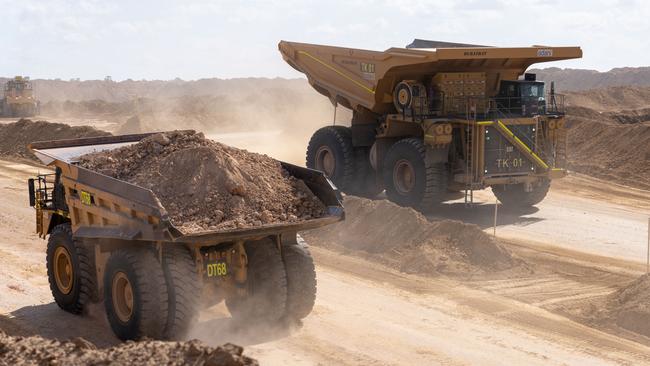Enterprise agreement pay rises hit 6.1 per cent
The 6.1 per cent average is the highest in the fortnightly data collected by the Fair Work Commission since July 2022.

Average pay rises in new enterprise agreements have jumped to 6.1 per cent, the highest in the fortnightly data collected by the Fair Work Commission since July 2022.
The latest data covering proposed agreements lodged between September 21 and October 4 shows there were 186 deals covering 196,476 workers submitted for approval, with more than half the workers employed in health and welfare services.
While the data does not provide detail of individual enterprise agreements, the reporting period coincided with the lodgement of a lucrative pay deal for Victorian public sector nurses and midwives, which delivered 28.4 per cent wage rises by 2027.
According to the commission, the agreements in health and welfare services collectively covered 104,755 workers and contained average annual pay rises of 6.6 per cent. Agreements covering almost 30,000 banking finance and insurance industry workers had average annual pay rises of 5 per cent, while deals covering 6641 education workers and 1324 sugar workers had average pay rises of 5.4 per cent and 7.5 per cent respectively.
The overall 6.1 per cent is significantly above past fortnightly data, which has recently hovered around 4 per cent.
The release of the new wages data came as the commission approved more “same job, same pay” applications for labour-hire mine workers in Queensland.

Hundreds of labour-hire coalminers in NSW and Queensland have secured significant pay rises totalling $17m, with applications for workers at an additional 19 coalmines before the Fair Work Commission.
Queensland labour-hire coalmine operator Tania Henshall, who will receive a pay rise of about $20,000 a year, said the outcome was “life-changing”.
“I do the same job and face the same level of risk as permanent workers. This pay rise helps me support my family, including with education,” she said.
Meanwhile, the Australian Services Union claimed an employer proposal to change the sleepover allowance for community and disability support workers would make it lawful for them to be at work for up to 28 hours without overtime pay.
The Australian Industry Group said its proposal was designed to stop employers being exposed to costs that were often not funded by government schemes. The ASU said the Ai Group was seeking to make sleepovers at workplaces classified as “breaks” between shifts, rather than as part of a continuous shift. A sleepover is when a worker sleeps at the same location as their client for eight hours but is required to provide care if needed.
ASU NSW and ACT secretary Angus McFarland said the business lobby was “hellbent on making sleepover shifts a nightmare for community and disability support workers”. “It’s outrageous that employers are attempting to drag the pay and conditions of dedicated sleepover care workers backwards. Workers could face a period of 28 hours away from home, without proper rest, breaks, or penalty rates,” he said.
“Community and disability support workers who stay overnight at their workplaces receive overtime pay if they work more than 10 hours before or after their sleepover, but the big business lobby wants to double the hours required before overtime applies.”
Ai Group chief executive Innes Willox said claims that workers would endure longer hours or operate while fatigued were inaccurate, as employers were subject to workplace laws that prevented them from requiring employees to work unreasonable or unsafe hours. “Employers in this sector are between a rock and a hard place. As unions will undoubtedly accept, they need to provide clients with consistent care before and after they sleep by engaging the same staff member to work both periods,” he said.







To join the conversation, please log in. Don't have an account? Register
Join the conversation, you are commenting as Logout